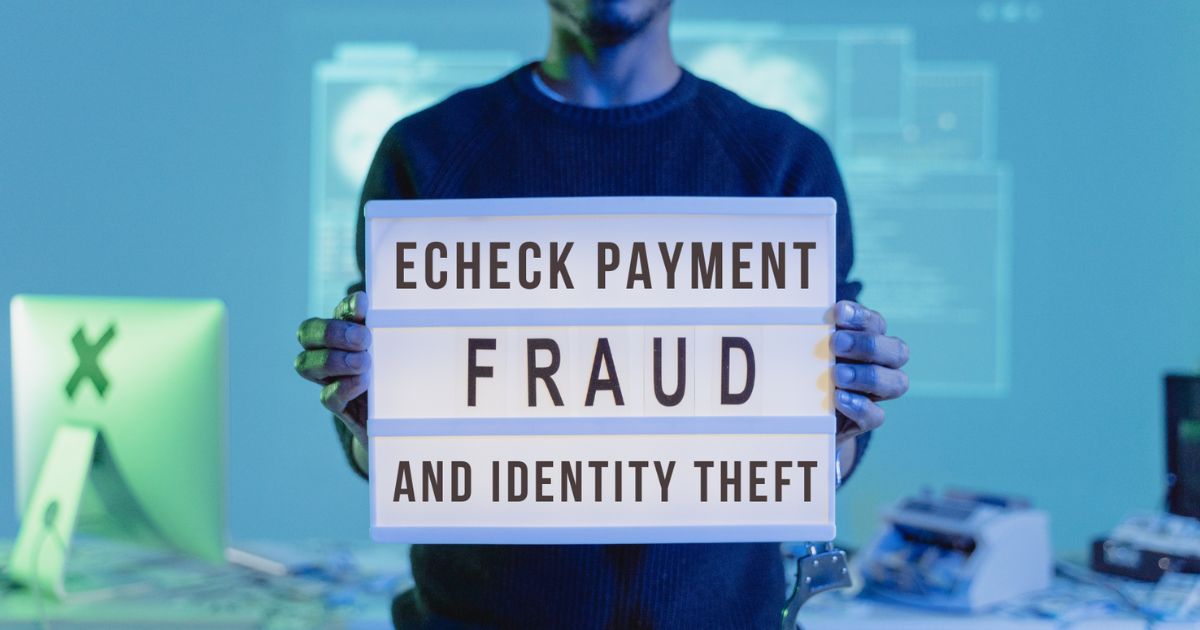
| May 17th, 2023 |
Enhancing Security in eCheck Payments – Addressing Fraud and Identity Theft!
In this digital age, electronic payments have become highly convenient and efficient in terms of financial transactions. eChecks or electronic check payments is one such payment method that has become quite popular. Despite being convenient, it is important to address the risks linked with eCheck payments like fraud and identity theft. This blog aims to explore the challenges posed by these threats and present effective strategies to enhance security in eCheck payments. Echecks are an electronic version of a traditional paper check. It is like a regular paycheck, except it can be processed online, eliminating the need for going to the bank. Echecks offer advantages such as faster processing, lower costs, and increased accessibility.
Challenges in eCheck Security:
Fraudulent Transactions –
Even though they are efficient, eChecks are vulnerable to fraudulent activities, like unauthorized check creation, alteration, and counterfeiting. Hackers could exploit the weakness of the system to create and cash fraudulent eChecks, leading to financial losses for businesses and individuals.
Identity Theft –
One of the major concerns in eCheck payments is identity theft. Criminals can steal personal information, such as bank account details or social security numbers, and use them to make unauthorized transactions with eChecks. It can result in severe financial repercussions and damage to personal and business reputations.
Enhancing Security in eCheck Payments:
Encryption and Secure Communication –
When it comes to protecting sensitive data during eCheck transactions is implementing robust encryption protocols and secure communication channels. Strong encryption is required to ensure information exchanged between parties remains confidential and cannot be intercepted or tampered with by unauthorized individuals.
Multifactor Authentication (MFA) –
Multifactor authentication makes the security of eCheck payments stronger. It includes several verification methods like passwords, biometrics, or one-time codes, to validate and authenticate users before authorizing transactions. This reduces the risk of unauthorized access and mitigates identity theft.
Enhanced Fraud Detection and Monitoring –
Implementing advanced fraud detection systems and real-time monitoring mechanisms can help identify suspicious activities and potential fraud attempts promptly. These systems utilize algorithms and machine learning techniques to analyze transaction patterns, detect anomalies, and flag high-risk transactions for further investigation.
Positive Pay System –
Businesses can utilize a positive pay system where they share electronic records of issued checks with their banks. The bank verifies incoming checks against the authorized records, ensuring that only legitimate checks are processed. This helps prevent counterfeit or altered eChecks from being cashed.
Conclusion:
As eCheck payments continue to gain popularity, it is vital to address the associated risks of fraud and identity theft. By implementing robust security measures, such as encryption, multifactor authentication, fraud detection systems, and education initiatives, businesses and individuals can enhance the security of eCheck payments. Additionally, collaboration and the establishment of industry standards can further strengthen the overall security framework. By taking proactive steps to address security challenges, we can foster trust and confidence in eCheck transactions, making them a safe and reliable payment method in the digital age.
